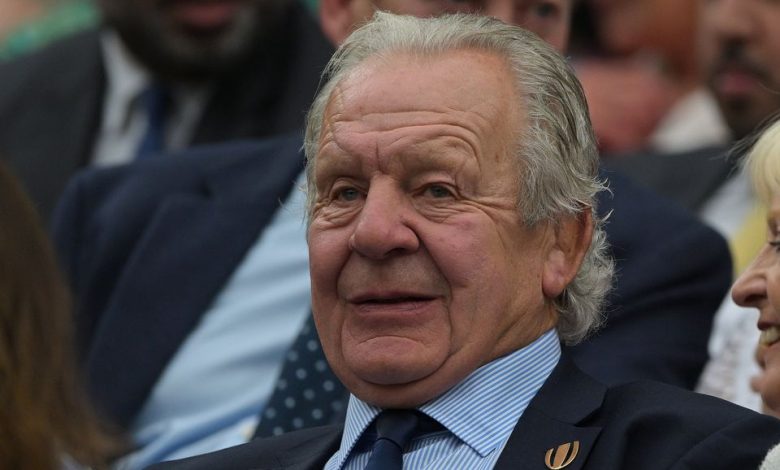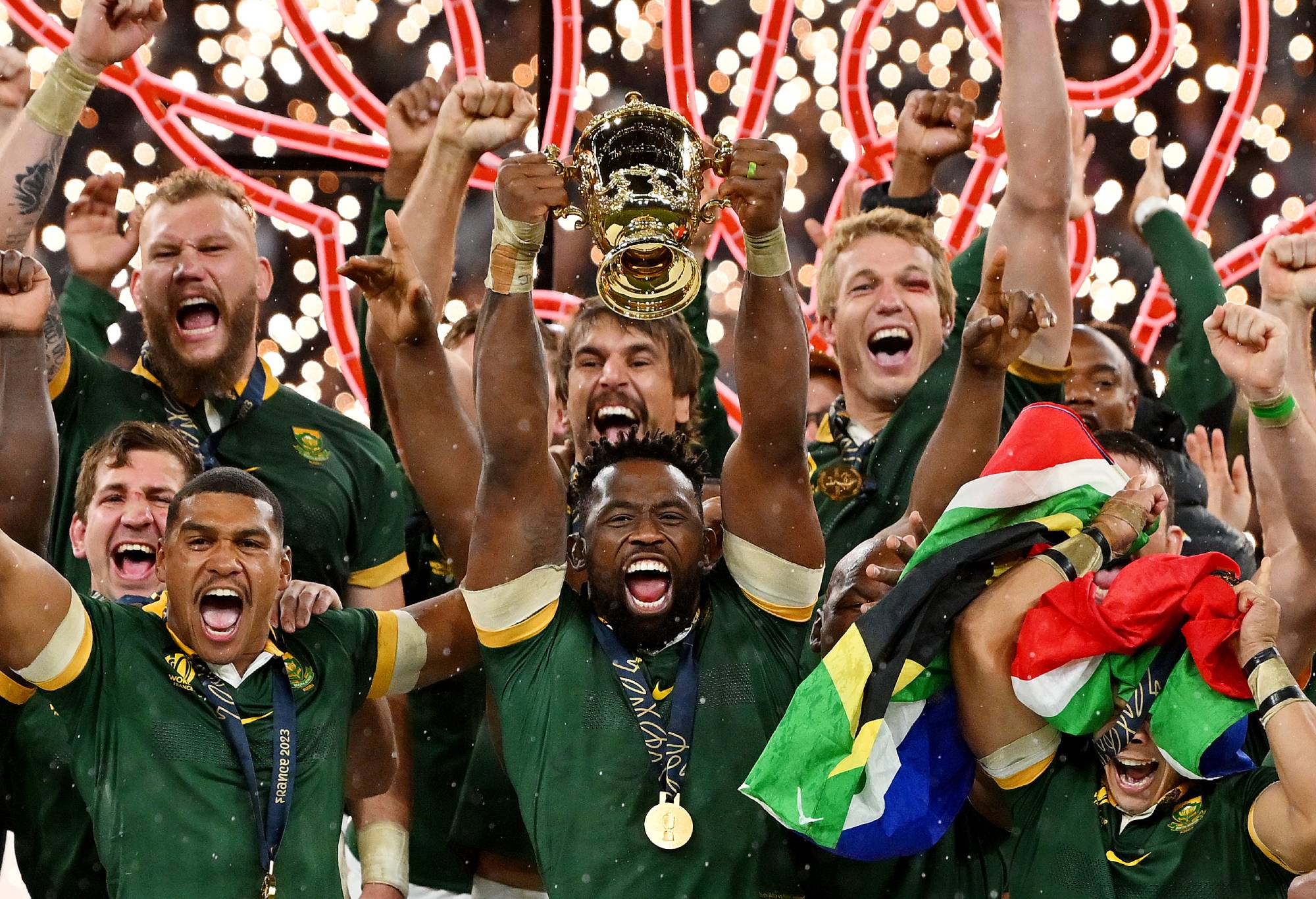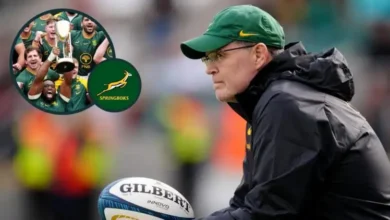‘We will die if everyone stays on his own side’: Next RWC decision will show the world what rugby wants to be

After Australia and America, where should the men’s Rugby World Cup head?
Qais Al-Dhalai, president of Rugby Asia, made a stir about Qatar as host next, likely as a press response test and it took off like a lead balloon.
The FIFA World Cup may have looked pretty on screens from afar, but the vibe for those attending in person was – shall we say – rather dull and uninviting. He did hedge by name-dropping Japan as a repeat and highly popular host, given the display of hospitality and efficiency even during a typhoon in 2019.
Returning is not a foreign concept: Australia has had a place as host or partial host twice already (1987 and 2003) and will welcome the world in 2027 with golden and joyful stadia even if ‘girt by sea.’
The efficiency of Aussies in holding a top ten sporting event, provisioning food and drink, housing visitors in an array of modern, prosperous cities balances out the ‘boundless plains’ problem of vast spaces and lack of a TGV.

The Olympic Games, the Cricket World Cup, and soccer’s showpiece bear more resemblance to rugby’s quandaries than considerations about Grand Slam tennis tourneys, the Tour de France, the Masters or the Open or the Super Bowl, because of the six to seven week span, 50 matches or so, and perceived role in being the shop window for the world.
The ten Cups so far have split four (Southern) to six (Northern) by hemisphere; 2027 will even it up and then the Webb Ellis goes west (and north) to the USA in 2031. Rather than jump to a wholly new and sandy island in the Gulf, might rugby be more prudent to embrace an inkblot strategy: fully securing a zone before salient spread?
Should the Western Hemisphere be given another Cup, albeit in Latin America where rugby appears to be doing precisely what rugby desires (growing like a weed with little water) before a return to familiar yet fanatic South Africa or the ‘scepter’d isle’ and ‘blessed plot’ where rugby got its name?
Argentina, like Wales, has finished third in the Cup once and fourth twice. The Argentine Rugby Union (UAR) was formed 125 years ago (as the River Plate RU) and the sport is firmly embedded in Buenos Aires, Rosario, Salta, Mendoza, and the Tucuman province, with over a hundred thousand formally registered players and a tradition of passionate support. The country has seven rugby-fit stadia with capacity over 30,000 (three at 50,000 or more) but plenty of football parks which can be adapted just as in France or England in prior Cups.

Neighbour Uruguay (a top 20 rugby nation) could host lower profile pool Tests. Montevideo is a couple of hours from Buenos Aires by ferry; or a short hop by jet. Another up-and-coming rugby destination, Chile, is a two-hour flight. Chilean rugby is almost as old as Argentine and the Condors are pushing towards the top twenty, gaining a place in 2023 by defeating the USA Eagles in the apex bird mascot decider by an aggregate one point.
Argentina has 2,500 hotels, handling 3-4 million international tourists a year (but as many as seven million, depending on currency rates) whilst Chile and Uruguay each handle about the same. A South American World Cup sends the purported expansion message of World Rugby without overreach. Plus, imagine the empanadas, dulce le leche, chicharron chochoca, tortas fritas, and garrapinada on offer, with no self-respecting restaurant shutting service before midnight and an abundance of mid-week destinations to explore: vineyard and slopes and tango and ocean and lost cities in which to find ourselves.
Even if the French never quite got the hang of the 2023 wave of visitors wanting to eat and drink in prodigious amounts at odd times of the day whilst walking and without etiquette, the country itself provided brilliance and diversity on tour.
French adventurer Sylvain Tesson put it best when he wrote: “France is a paradise inhabited by people who think they’re in hell.” But the key part of that is the paradise; one forgets the sour attitudes of the average native.
So it is a Malbec-soaked Andes over the dry and hungry Gulf? The problem is the worthy Latin American trio of rugby stalwarts lack the votes, and are not seen as an investment magnet.
Despite being considered the ‘preferred candidate’ last time, four-time winner and perennial powerhouse South Africa lost out to France after the Asian vote switched in a process SARU CEO Jurie Roux (no stranger to odd votes) called ‘opaque’ and marred by the subsequent conviction of World Rugby vice-president (or president of vice) Bernard Laporte on corruption charges.
To win, France promised a net revenue return to World Rugby of $453 million, dwarfing South Africa’s guarantee. According to the French Ministry of Sport and an Ernst & Young report it commissioned, the French government committed $75 million and generated $90 million in added tax revenue from almost $2 billion in tournament-related spend by domestic fans and about 425,000 international visitors; a net boon to France of $941 million which will stick in the craw like foie gras biltong of Saffas who thought they were going to celebrate Siya Kolisi raising the Cup in Cape Town like it was 1995 with better hair.
The projections of profit from the 2027 and 2031 Cups by World Rugby are $687 million and $907 million, respectively, but only if current trajectories of growth are maintained.
Is it only about the money? Does the sport owe a duty of respect, a heritage tax, or even a makeup for how France won the money war with South Africa it lost on the pitch?
A fortnight or month driving up the Wild Coast or wine-tasting by horseback in the Boland or seeing the best game parks in the world up north or conducting a curry taste competition at the Rocks or hunting in the Karoo or abseiling off Table Mountain or a hike in the Drakensberg or going very large in Durban or visiting world heritage sites of renown would not dent the wallet the way one meal in Lyon with too many stars did last year; plus the land is rugby mad.
An abiding memory of New Zealand in 2011 was how thoroughly into it both islands were; suffused and intoxicated and well-versed and happy about the rugby pilgrims on arrival. South Africa would have all of that, plus a far larger hospitality suite. If this is to be, SARU will need to become even more preferred than preferred, satisfy security concerns, and do the weaseling, jackling, cleaning, and set pieces of the boardroom and smoke-filled salons as well as it navigates the game between the lines on the field. Early signs are positive.
French candidate for World Rugby chairman, Abdelatif Benazzi, is being seconded by SARU. Benazzi says rugby faces an existential crisis if it fails to find new markets and bring more cash into the game. “All the federations, even the historic ones, [are] in trouble with their revenues,” he told BBC Sport.
“Rugby is in trouble around the world. We will die if everyone stays on his own side. We have to think collectively. You could see the paradox at the last Rugby World Cup. … It is maybe third in the world behind the soccer World Cup and the Olympics. We saw one and a half billion watching, but … the income is not enough for such a popular sport. But we won’t sell our rugby and lose our values.”
However, Benazzi supports Qatar making a bid for the Nations Championship finals, in line with his global pitch to the Council.




